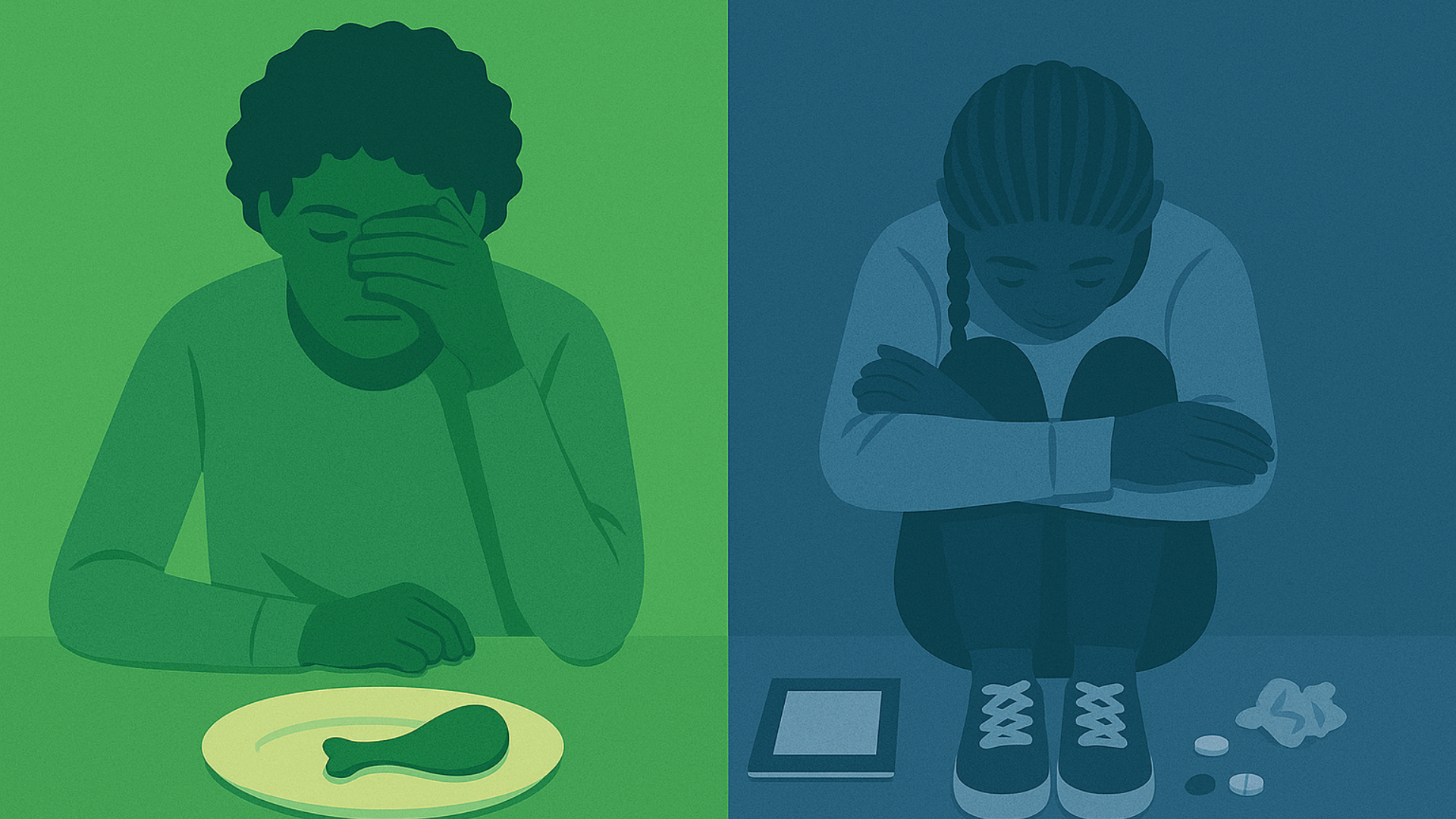What is Diabulimia? When Eating Disorders and Diabetes Collide

By Thrive Reno’s Director of Nursing Liz Lass, RN, CEDRN, CPT
WHAT IS DIABULIMIA?
Although diabulimia isn’t an official medical diagnosis, the clinical term describes when insulin-dependent diabetes (typically type 1) co-occurs with an eating disorder. Individuals with diabulimia often engage in binge eating and compensatory behavior to prevent weight gain, including the restriction of their insulin intake.
Insulin is a necessary hormone in the body that allows carbohydrates to be metabolized into energy that fuels cellular function. Without insulin, the cells essentially starve, which can cause the affected individual to experience significant weight loss as well as develop other life-threatening complications.
WHY DIABULIMIA DEVELOPS
Many associated elements of insulin-dependent diabetes serve as risk factors for the development of an eating disorder.
Some risk factors of diabulimia include:
Being Diagnosed With Diabetes at Young Age
One of the most prominent risk factors for diabulimia is being diagnosed with type 1 diabetes during adolescence or childhood. Adolescents already face challenges as they adjust to their bodies’ natural changes during puberty. If an adolescent is diagnosed with diabetes during this volatile period, they may feel an increased sense of isolation at a time when social acceptance is highly valued. These heightened feelings of social discomfort surrounding body image and food can drive some adolescents with diabetes to control their weight, especially by manipulating their insulin intake.
Associating Weight Gain With Insulin Intake
As diabetes develops, the affected individual may experience increased thirst and hunger in addition to weight loss. When their symptoms become severe enough to seek medical attention and they receive a diabetes diagnosis, the individual may correlate their subsequent weight gain with their insulin intake. Although their body is restoring itself to its natural weight, some people may resist this healthy weight gain by limiting their insulin intake.
Increased Focus on Diet
To administer the correct amount of insulin, individuals with insulin-dependent diabetes are required to monitor their carbohydrate intake which can lead to a hyperfocus and even avoidance of carbohydrates.
Additionally, sometimes parents of a diabetic child obsessively limit their child’s carbohydrate and sugar intake. Though well-intentioned, this parental behavior can cause children to feel ashamed when they eat these types of foods and even drive them to secretly binge eat.
SIGNS AND SYMPTOMS OF DIABULIMIA
Signs and symptoms of diabulimia that are similar to those of other eating disorders include:
- Restriction of food
- Binging and/or purging
- Compulsive exercise
- Manipulation/restriction of insulin intake
- Not wanting to eat with others
- Avoiding eating carbohydrates
- Increased irritability
- Low energy
- Loss of interest in activities one used to enjoy
Diabulimia can cause a person to experience persistently elevated blood sugar. Symptoms of persistently elevated blood sugar include:
- Multiple hospital admissions related to high blood sugar leading to diabetic ketoacidosis (when the body lacks the insulin necessary to allow blood sugar into the cells for use as energy)
- Tachycardia (having a heart rate that is too fast)
- Hyperpnea (taking deeper breaths than usual)
- Nausea
- Vomiting
- Confusion or altered mental status
- Acetone breath (when the breath has a fruity scent similar to nail polish remover)
Medical labs can also help indicate if a person is struggling with diabulimia. Signs that can be indicated by medical lab work include:
- Elevated blood glucose levels
- Elevated hemoglobin A1C (indicates elevated average blood glucose levels over three months)
- Elevated fructosamine (indicates elevated average blood glucose levels over the previous weeks)
- Urine ketones (byproducts produced when the body is forced to burn fat for energy instead of carbohydrates)
THE DANGERS OF DIABULIMIA
The persistent high blood sugar caused by diabulimia often results in the desired weight loss, however, it comes at a very high price.
The medical consequences of diabulimia include:
- Neuropathy (nerves damage that causes numbness, tingling, muscle weakness, and pain)
- Blindness
- Non-healing wounds
- Organ failure
- Amputations
- Diabetic-ketoacidosis, which can result in coma and death
MEDICAL MISCONCEPTIONS ABOUT DIABULIMIA
Similar to eating disorders in general, there is a lack of training related to diabulimia within the medical field. As a result, it’s common for clinicians to overlook a diabetic client’s eating disorder. Instead of addressing co-occurring conditions, physicians may tell their diabulimia clients that they are not managing their diabetes responsibly, designating them as “non-compliant” with their diabetes management or as “experiencing diabetic burnout.” Often, individuals struggling with diabetes and eating disorders feel ashamed and this erred clinical approach only adds to their sense of shame and isolation.
INTEGRATED TREATMENT AND RECOVERY FOR DIABULIMIA
If you’re struggling with diabulimia, know that embracing life free of an eating disorder while responsibly managing your diabetes and eating intuitively is entirely possible. Thrive Wellness can empower you to do just that. Thrive takes a multidisciplinary approach to treating individuals with diabulimia so you can heal holistically. You can learn more about our eating disorder treatment programs by reaching out to us .
About the Author
Thrive Reno’s Director of Nursing Liz Lass, RN, CEDRN, CPT
Liz Lass, RN, CEDRN, CPT, is Thrive’s Director of Nursing and is truly passionate about working with the eating disorder community. Liz earned her Bachelor’s of Science in Nursing from the University of Nevada, Reno, and Bachelor’s in Science in Exercise and Sport Science from Western Washington University in Bellingham, WA. Liz is a CEDRN (Certified Eating Disorder Registered Nurse) and has 9 years of experience working with the eating disorder population. Liz is also a certified personal trainer and is passionate about integrating her background of exercise science into her practice through mindful movement and helping clients heal their relationship with exercise. Her dynamic role at Thrive Wellness includes performing nursing assessments, providing meal support, leading groups, consultations, and assisting prescribers at Thrive Wellness with coordination of care between agencies, pharmacies, and laboratories. In her free time, Liz enjoys all that the Reno-Tahoe area has to offer, including skiing, hiking, biking, camping, wake-surfing, paddle boarding, and listening to live music. She grew up in Sun Valley, ID, and lives with her husband, two sons, and blue heeler in Verdi, NV.
The post What is Diabulimia? When Eating Disorders and Diabetes Collide first appeared on Thrive Wellness.








